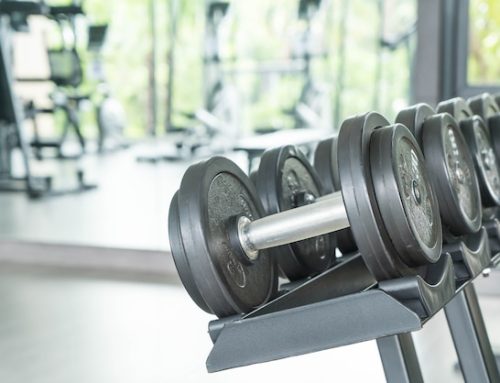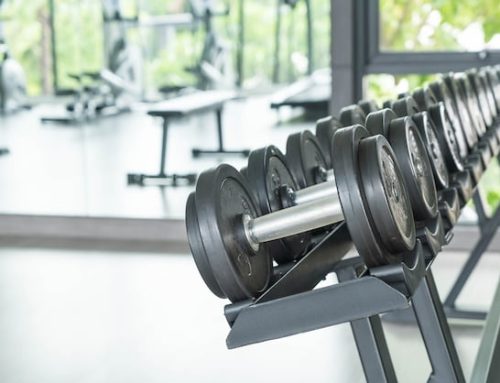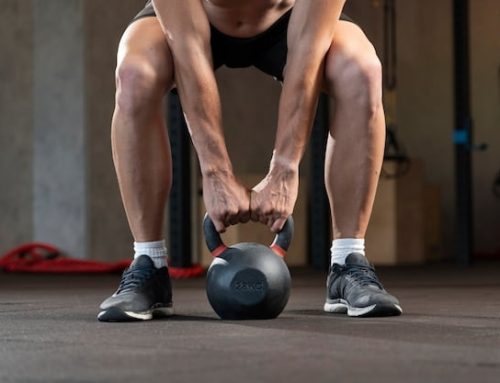The Hours of Training Required to Build a Powerful Body
Building a strong and powerful body that turns heads requires much more than just hitting the gym and lifting weights. Bodybuilding is a discipline that requires dedication, perseverance, and patience. One of the most common questions asked by aspiring bodybuilders is how many hours they need to train each week to achieve their goals.
The Ideal Training Schedule for Bodybuilders
The answer to the question of how many hours a week bodybuilders train depends on several factors such as age, sex, fitness goals, and experience. However, most professional bodybuilders train for about 4 to 5 hours a day, five days a week, totaling 20 to 25 hours a week.
Creating an ideal training schedule for bodybuilders by the hour can help structure your day and allocate time for training, meals, and rest. Here’s a sample table outlining a potential daily schedule for bodybuilders:
| Time | Activity |
|---|---|
| 6:00 AM – 7:00 AM | Pre-workout meal and hydration |
| 7:00 AM – 9:00 AM | Resistance training (focus on specific muscle groups) |
| 9:00 AM – 10:00 AM | Post-workout meal and recovery |
| 10:00 AM – 12:00 PM | Rest and relaxation |
| 12:00 PM – 1:00 PM | Midday meal |
| 1:00 PM – 4:00 PM | Personal time or additional workouts (cardiovascular, flexibility) |
| 4:00 PM – 6:00 PM | Afternoon meal and rest |
| 6:00 PM – 8:00 PM | Resistance training (other muscle groups) |
| 8:00 PM – 9:00 PM | Evening meal |
| 9:00 PM – 10:00 PM | Wind down and relaxation |
| 10:00 PM – 6:00 AM | Quality sleep and restful night |
It’s important to prioritize adequate sleep, proper nutrition, and recovery between training sessions to support muscle growth and overall health. Consulting with a certified personal trainer or nutritionist can help tailor a training schedule and meal plan to suit your specific goals and needs.
Remember to listen to your body and make adjustments as needed. Everyone’s schedule and preferences may differ, so find a routine that works best for you while allowing for proper rest and recovery.
Ideal training schedule for bodybuilders
However, here’s a sample table outlining a potential weekly training split for bodybuilders:
| Day of the Week | Training Focus |
|---|---|
| Monday | Chest and Triceps |
| Tuesday | Back and Biceps |
| Wednesday | Rest or Active Recovery |
| Thursday | Legs and Shoulders |
| Friday | Arms and Abs |
| Saturday | Rest or Active Recovery |
| Sunday | Rest or Active Recovery |
It’s also important to incorporate other aspects of training, such as cardiovascular exercise and flexibility training, throughout the week. Additionally, considering factors like progressive overload (gradually increasing weights or repetitions) and allowing sufficient rest and recovery between training sessions is crucial for optimal muscle growth and injury prevention.
The Role of Nutrition in Bodybuilding
In addition to training, nutrition is also a crucial component of bodybuilding. Bodybuilders need to consume a diet rich in protein, carbohydrates, and healthy fats to fuel their muscles and facilitate recovery. A well-balanced diet ensures that the body has the necessary nutrients to build and repair muscles after intense training sessions.
Nutrition plays a vital role in bodybuilding, as it provides the necessary fuel and nutrients for muscle growth, repair, and overall performance. Here are some key aspects of nutrition and their role in bodybuilding:
- Sufficient Caloric Intake: Bodybuilders often aim to consume a slightly higher number of calories than their daily energy expenditure to support muscle growth and maintenance. This helps provide the necessary energy for workouts and aids in muscle recovery.
- Macronutrient Balance: Bodybuilders focus on achieving an appropriate balance of macronutrients, which include proteins, carbohydrates, and fats.
- Protein: Adequate protein intake is essential for muscle repair and growth. Bodybuilders typically aim to consume around 1.2 to 2 grams of protein per kilogram of body weight per day to support muscle protein synthesis.
- Carbohydrates: Carbohydrates provide energy for intense workouts and replenish glycogen stores. Bodybuilders often consume complex carbohydrates like whole grains, fruits, and vegetables to ensure sustained energy levels.
- Fats: Healthy fats, such as those from sources like avocados, nuts, and olive oil, are important for hormone production and overall health. They also provide a concentrated source of calories for individuals aiming to meet their caloric needs.
- Meal Timing and Frequency: Bodybuilders often follow a meal timing strategy that involves consuming multiple small meals throughout the day. This approach helps maintain a steady supply of nutrients and promotes muscle recovery and growth.
- Hydration: Staying properly hydrated is crucial for optimal performance and muscle function. Bodybuilders should aim to drink enough water throughout the day and during workouts to maintain hydration levels.
- Supplements: While not necessary, some bodybuilders may choose to incorporate supplements into their nutrition plan. These may include protein powders, creatine, branched-chain amino acids (BCAAs), and other specific supplements. It’s important to remember that supplements should not replace a healthy and balanced diet.
The Importance of Rest and Recovery in Bodybuilding
While many bodybuilders train for long hours to achieve their desired results, they also understand the importance of rest and recovery. Adequate rest and recovery are essential for muscle growth and repair. Therefore, bodybuilders need to balance their training with rest and recovery to avoid exhaustion and burnout.
The Benefits of Smart Training
Training for long hours is not the only factor that determines success in bodybuilding. The quality of training is equally as important as the quantity of training. Bodybuilders need to focus on smart training techniques that target specific muscle groups and generate maximum muscle growth.
The Importance of Goal Setting in Bodybuilding
Setting goals is a vital component of success in bodybuilding. Bodybuilders should set specific, measurable, achievable, realistic, and time-bound (SMART) goals that align with their fitness goals. Setting SMART goals helps to define purpose and focus, and creates a sense of direction towards achieving desired results.
- Clarity and Focus: Setting specific goals helps you clarify what you want to achieve in your bodybuilding journey. Whether it’s building muscle mass, reducing body fat, improving strength, or competing in a bodybuilding competition, having a clear goal provides focus and guides your training and nutrition decisions.
- Motivation and Commitment: Goals act as powerful motivators. When you have a clear vision of what you want to achieve, it becomes easier to stay committed to your training and nutrition plan. Goals provide a sense of purpose and drive, especially during challenging times or when progress seems slow.
- Progress Tracking: Setting measurable goals allows you to track your progress over time. It helps you assess whether you are moving in the right direction, make necessary adjustments to your training or nutrition plan, and celebrate milestones along the way. Tracking progress can boost confidence and provide a sense of accomplishment.
- Structure and Planning: Goals provide a structure for your bodybuilding journey. They allow you to create a well-organized training program, set deadlines, and establish a timeline for achieving specific milestones. This helps you plan your workouts, nutrition, and recovery strategies more effectively.
- Personal Development and Growth: Goal setting in bodybuilding extends beyond physical achievements. It promotes personal development and growth by challenging you to step out of your comfort zone, learn new skills, and develop discipline, perseverance, and mental resilience.
- Accountability and Support: Sharing your goals with others, such as a coach, training partner, or support group, can provide accountability and support. They can help keep you on track, provide guidance, and offer encouragement during challenging times.
The Role of Consistency in Bodybuilding
Consistency is crucial in bodybuilding. Regular training, balanced nutrition, and adequate rest and recovery are critical components of success in bodybuilding. Consistent training ensures that the body receives a consistent stimulus for muscle growth, while consistent nutrition and rest support muscle recovery and growth.
Conclusion
In conclusion, bodybuilding is a complex discipline that requires a combination of training, nutrition, rest, and discipline to achieve desired results. While many factors contribute to success in bodybuilding, the number of training hours required depends on individual fitness goals, experience, and other personal factors. When setting goals in bodybuilding, it’s important to make them SMART: Specific, Measurable, Achievable, Relevant, and Time-bound. This ensures that your goals are well-defined, realistic, and provide a clear framework for action. Remember to regularly review and revise your goals as you progress and adapt to changes in your body and circumstances. Be flexible and open to adjusting your goals if needed, as long as they remain aligned with your overarching vision. Lastly, enjoy the journey and embrace the process of striving towards your goals. Bodybuilding is a long-term commitment, and goal setting helps make the experience more purposeful, rewarding, and fulfilling.






